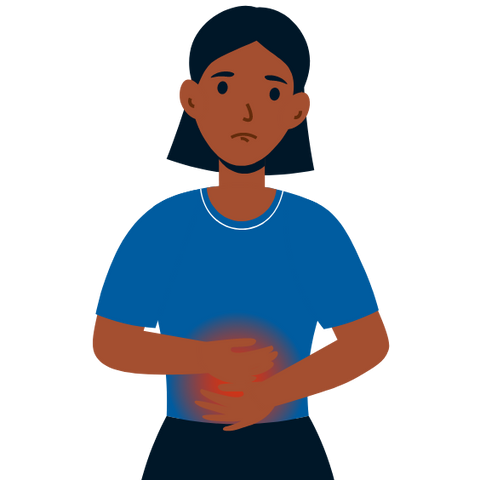Painful Periods
This post was written by Sarah Cox, a third year medical student at UTHSCSA who is studying to become an OBGYN.
“Help! My period is really painful and I don’t know if that is normal or not.”

What counts as abnormal period pain?
- Painful cramps that interfere with daily activities (school, work, social activities, sports, etc)
- Pain not reduced by pain medication (such as ibuprofen)
- Cramps with nausea, vomiting, diarrhea, headache, fatigue, or dizziness
If you are experiencing any of these symptoms, please reach out to a doctor for a checkup. You do not need to live with extreme period pain!
Why am I experiencing so much pain?
Sometimes painful cramps during periods happen on their own without another medical diagnosis (called primary dysmenorrhea), but they can also occur because of another medical diagnosis (called secondary dysmenorrhea). Many teens, up to 60% or more, experience extreme period pain, often because of primary dysmenorrhea.
What is Primary Dysmenorrhea?
Primary dysmenorrhea is common in the teenage years because the reproductive system is still maturing and adjusting to the monthly menstrual cycle. During this time, the uterus is producing too much of a type of chemical called prostaglandins that causes intense cramping of the uterus muscle. Prostaglandins are supposed to help the uterus shed the lining that turns into period blood, but in the teenage years especially, more than enough of these prostaglandins are released. These prostaglandins can also lead to the nausea, vomiting, and diarrhea some people experience with cramping. For most menstruators, the amount of prostaglandins released normalizes over the teenage years, but in the meantime, treatments such as ibuprofen or birth control can help!
What is Secondary Dysmenorrhea?
Secondary dysmenorrhea is more common in adult menstruators, but can sometimes affect teens too. Common causes of secondary dysmenorrhea include other conditions diagnosed by doctors, including endometriosis (uterine tissue outside the uterus), adenomyosis (uterine tissue in the uterine muscle), ovarian cysts, and pelvic infections.

What do I do if I am experiencing extreme pain?
A visit to the doctor can help you figure out what may be causing your pain so that you can explore different treatment options and find relief.
Is your period pain “normal” but you aren’t sure how to handle it? Read more here (link to PMS post).
